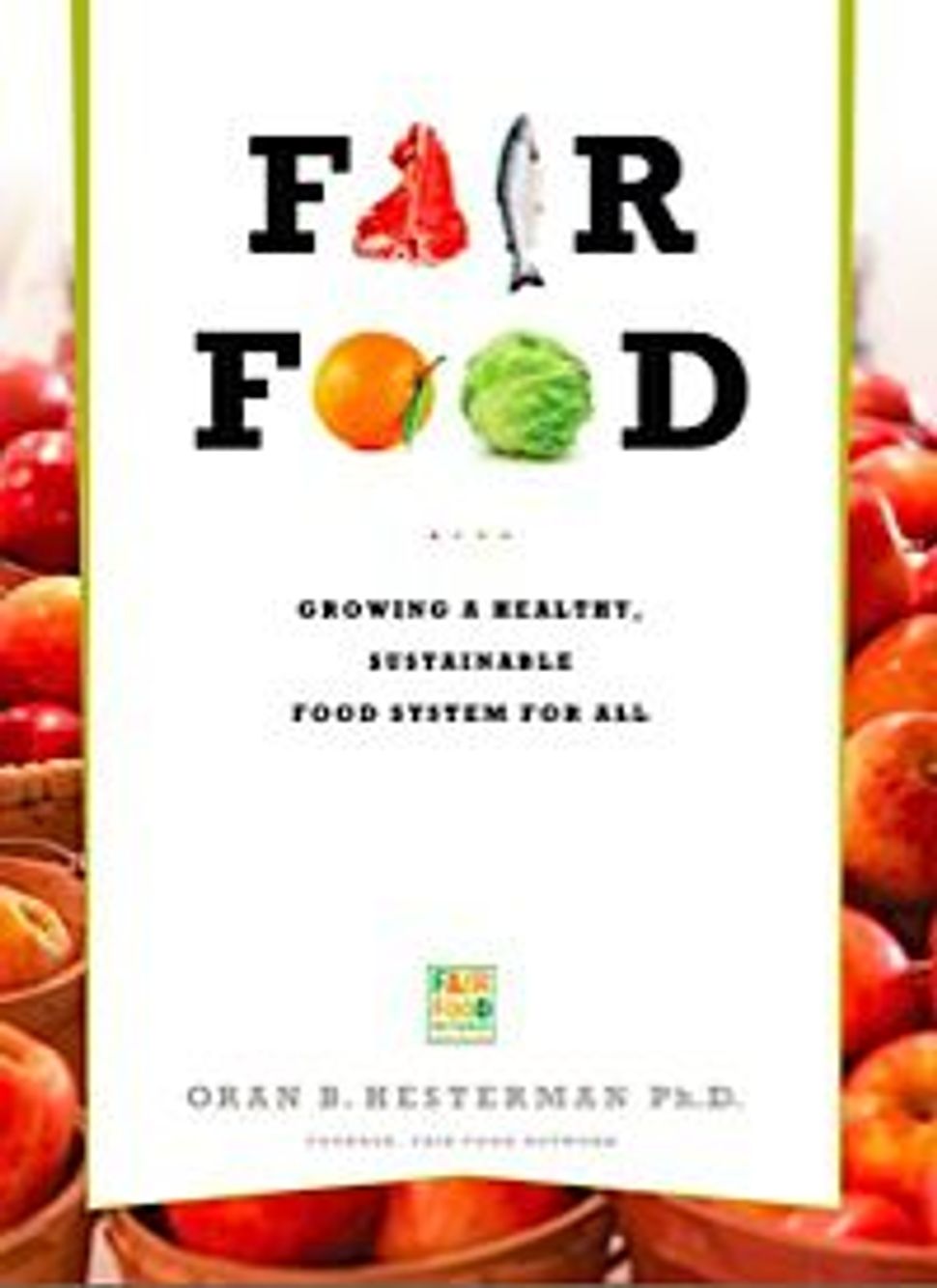‘Fair Food’: How To Do More Than Vote With Your Fork

Image by Courtesy of Fair Food Network
Check back on Wednesday for an editorial on “Fair Food” and a podcast with author Oran Hesterman.
My first Community Supported Agriculture (CSA) pick up of fresh, local, organic veggies, is a few days away. In mid-winter, I plunked down $550, signed up for my volunteer slots, and felt good that I was voting with my fork for a healthier, more sustainable food system.
During the 2011 growing season, I’m joined by a network of 56 Hazon CSAs and thousands more CSAs across the country. While I am excited for the season to begin, I’m aware of the many people don’t have access to a CSA or even to a grocery store. According to one USDA study on food deserts, “more than 57 percent of people living in low income neighborhoods have limited physical access to supermarkets or grocery stores.”
Our food system is broken. Joining a CSA is a great first step, and there is more we can do in order to fix it.
Enter “Fair Food: Growing a Healthy, Sustainable Food System for All”, a guide to changing not only what we eat, but how our food is grown, packaged, delivered, marketed and sold. Author and founder of the Fair Food Network Oran B. Hesterman, shows how our food system’s dysfunctions are the unintended consequences of our emphasis on efficiency, centralization, higher yields, profit and convenience.
“Fair Food” describes four key principles a redesigned food system should embody:
• Equity: “Access to healthy, fresh, sustainably grown food is a basic human right that is being systematically denied to residents of historically excluded communities.”
• Diversity: “Diversity in the food system extends to the people growing and consuming our food, the methods of production, the types of markets and ownership models, the scale of farms and food enterprises, and the methods of distribution. Like a diverse ecosystem, a more diverse food system is stronger, more resilient and healthier in the long term.”
• Ecological Integrity: “Agriculture practiced in concert with nature more closely mimics our natural systems that regenerate and adapt to changing conditions, reducing pollution and environmental degradation and building healthier farms, orchards, and animal pastures.”
• Economic Viability: “Innovation, adaptation to new conditions and creativity foster the economic viability of every link in the supply chain that takes food from the producer to the consumer.”
In addition, “Fair Food” offers examples of how various individuals and organizations have started to integrate these principles into their enterprises. It closes as a practical guide for how individual and collective action can create big changes in our food system. This book might change your life, especially when you share and discuss it with your friends.
As Hesterman says, now is the time for each of us “to shift from conscious consumers to engaged citizens.” We need to think about the food policies that affect our lives, communities and nation, from our Jewish institutions, to the USDA, to the federal Farm Bill. Food policies, overt or implicit, affect how food is produced, processed, distributed, purchased, or protected.
With discussions around the 2012 Farm Bill beginning soon, it is important to start to familiarize yourself with the issues that will be up for discussion. Hesterman tells us that, “The Farm Bill is important because it establishes national goals and priorities for farming, conservation, nutrition, and rural development. It is also important because it represents significant government expenditures, about $300 billion over the five-year life of the bill.”
Hazon and the Fair Food Network are partnering to provide you with up-to-date information as the Farm Bill re-authorization process unfolds. We expect Jewish tradition will enable us to better understand the challenges in our contemporary food system. Learn more on July 20 with Hesterman by attending the Build a Jewishly informed Farm Bill webinar. We’ll also host a series of webinars with Hesterman to talk about other changes we can make in our food system.
You can also take action in your Jewish institution. Over the next few months, Hazon will be working to refine a Food Guide Toolkit which will enable you to evaluate the food sustainability and justice in your Jewish institution and to create action plans to make healthier, more sustainable food choices there. Alongside the Fair Food Network, we are asking you to make a commitment to engage the leadership of your Jewish institution to view food as a critical issue in the development of your community.
Judith Belasco is the Director of Food Programs at Hazon where she guides all of Hazon’s Food Programs and the expansion of our food work. She hopes to see you in August at the Hazon Food Conference.























